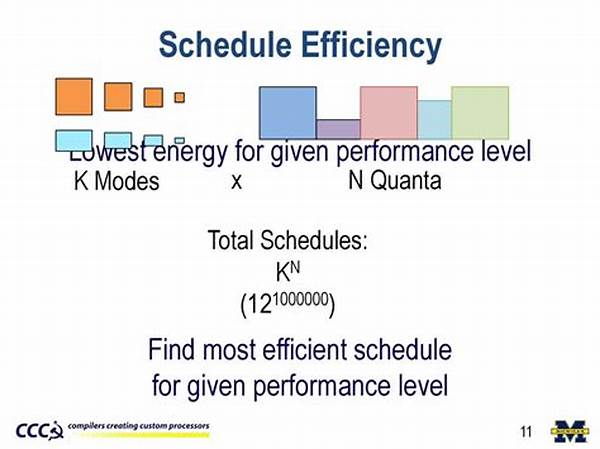The Future of Work Time Flexibility Matters Most
In the fast-paced world of the 21st century, the traditional 9-to-5 work schedule is swiftly becoming a relic of the past. As the world becomes more interconnected and digital, both businesses and employees are recognizing the importance of time flexibility in the workplace. The future of work time flexibility matters most, as it is emerging as a critical factor in job satisfaction, productivity, and even overall life happiness.
Read More : Batch Working Tips To Increase Efficiency
Think about it: when was the last time you heard someone say, “I love my job because of its rigid hours?” Precisely. The ability to tailor work hours around personal commitments doesn’t just boost morale; it opens the door to a more balanced life. Employees no longer have to choose between attending their child’s school play or making it to the gym before the evening crowd hits.
Interestingly, it’s not just employees who are reaping the benefits of this change. Businesses are seeing tangible returns from offering flexible work schedules. By allowing workers to optimize their hours, companies are not only increasing productivity but also expanding their talent pool. With the option of remote work, organizations can hire from a global talent pool rather than just the local market.
Moreover, the modern workforce isn’t just about earning a paycheck; it’s about finding meaning and balance in work and life. This shift is a clear signal that the future of work time flexibility matters most. We’ve entered an era where being free from the shackles of an inflexible schedule is becoming a benchmark for progressive and forward-thinking companies. Picture this: less stress, more productivity, and the ever-elusive work-life balance—doesn’t that sound like the dream team?
Why Businesses Are Embracing Flexible Work Hours
Flexibility isn’t just a bonus perk anymore; it’s a business imperative. As industries evolve and adapt, so must their approaches to time management. In today’s ever-changing landscape, businesses that ignore the trend toward flexibility risk lagging behind, losing out on top talent and ultimately failing to maximize their potential.
—
Exploring the Growing Trend of Flexible Work Hours
In the digital age, the concept of work has undergone a transformation unparalleled in history. More than ever, businesses and employees alike are pushing for flexible work hours as a vital component of modern employment. Let’s dive into why the future of work time flexibility matters most and how it’s changing our professional realm dramatically.
Modern employees are no longer strictly motivated by salary alone. Indeed, surveys show that job satisfaction is closely tied to benefits like time flexibility. The pandemic has been a catalyst, showcasing how effectively people can work away from traditional office settings, leading companies to rethink their work structures. As a result, the future of work time flexibility matters most in this evolving professional world.
The Win-Win Scenario Offered by Flexibility
If you’re a business owner, you might wonder, “What’s in it for my company?” The benefits extend beyond happy employees; it translates to a more efficient workforce. Flexibility leads to higher job satisfaction, which in turn reduces turnover rates. A happy employee is more enthusiastic and innovative, bringing fresh ideas and energy to the workplace. Simply put, flexible work hours can drive businesses to success by fostering a motivated and dedicated team.
Beyond productivity, what about talent acquisition? Today’s top professionals are seeking more than just a good paycheck; they desire autonomy. Companies that offer flexible schedules are not only recruiting talent more easily but retaining it. Thus, the future of work time flexibility matters most because it offers businesses a competitive edge.
How Companies Can Implement Flexibility
The journey to offering flexible work schedules might seem daunting, but the path is paved with choice and potential. Initially, it requires a shift in mindset, moving from a focus on hours clocked to objectives achieved. Companies might start by offering remote work days or compressing work weeks. Even simple changes like altered start and end times can make a world of difference.
The trick lies in finding a balance that doesn’t compromise on productivity while still meeting the needs of employees. The successful integration of flexible work hours can redefine company culture, inviting a more vibrant, energetic, and loyal workforce.
Key Aspects of Flexibility in the Workplace
By sharing experiences and advice, companies already on this path can serve as guides, further demonstrating why the future of work time flexibility matters most.
Implementing Flexibility: A Roadmap
To harness the benefits of this trend, it’s essential for companies to map out a clear strategy. Such a strategy would need to encompass innovations in technology, a mindset shift from traditional measures of success, and a robust framework for evaluating performance. Investing in communication tools, training managers for flexibility, and creating policies that encourage work-life balance are key steps on this journey.
Don’t forget the human element. Behind every successful implementation, there’s a story of individuals taking the leap to embrace change. Compassionate leadership helps assuage concerns and builds a resilient framework that can migrate away from rigid structures, opening a world where the future of work time flexibility matters most.
—
Understanding the Future of Work Time Flexibility
1. Increased Productivity: Studies highlight the link between flexible schedules and higher productivity.
2. Better Work-Life Balance: Employees appreciate control over their schedules, which improves life quality.
3. Broader Talent Pool: Attract diverse talents from around the globe with flexible hours.
4. Reduced Burnout: Flexibility in work hours helps lighten mental load and improve health.
5. Cost Savings: Minimizes overhead costs by reducing the need for large physical office spaces.
6. Adaptability: Offers the ability to respond to sudden changes seamlessly.
7. Enhanced Creativity: A relaxed work environment fuels creativity and innovation.
8. Focus on Results: Builders of flexible schedules prioritize outcomes over clocked hours.
9. Improved Employee Retention: Happy and satisfied employees are more loyal.
10. Environmentally Friendly: Reduces commuting, which helps decrease the carbon footprint.
Embracing Flexibility for a Brighter Future
Implementing flexible work schedules isn’t just about appeasing the workforce; it’s about creating a more sustainable, adaptable, and effective work environment. With more businesses acknowledging that the future of work time flexibility matters most, we are witnessing an era of radical transformation.
Companies and employees must work in tandem to overcome challenges and leverage the many benefits of flexibility. By focusing on results rather than time and trusting in their workforce, organizations can unlock new levels of creativity and productivity, paving the way for an innovative future. Flexibility is indeed the gateway to unlocking potential at both the personal and organizational levels, ensuring a vibrant and dynamic future.
With flex time as the new norm, businesses can look forward to an engaged and energized team that’s ready to achieve great heights. Give your organization a competitive edge by embracing the future of work time flexibility matters most, rewriting the rules of work to be more inclusive, happier, and productive.



